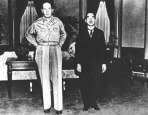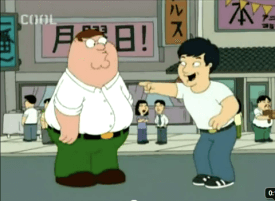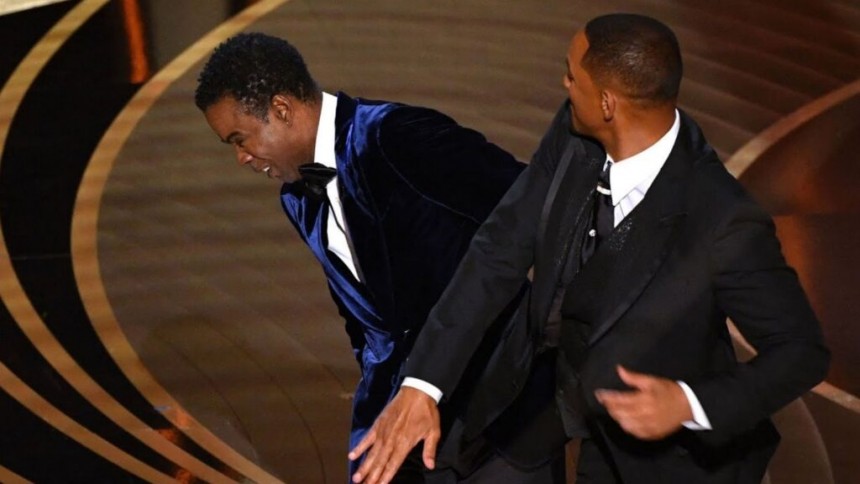“We (Japanese) have worked diligently to become members of the international community”
~Tomoko Ishida, 11th grade student in Nagoya City
Considering the slogans which have been chosen by Japan, such as Hope Lights Our Way and Discover Tomorrow, perhaps the quote by this high school student perfectly captures the symbolic meaning of the 2020 Olympics. These phrases, spewing sentiments for a promising future, embody the fulfillment of a quest undertaken by previous generations; a journey embarked on almost immediately following the catastrophic atomic bombings of Hiroshima and Nagasaki. The second-half of the 1940s into the 1950s were marred with grim despair as the war-survivors stood back up and recovered their wits before deciding to trek down a long, dark and uncertain corridor toward a light they were told existed but could not see.
In 1952, a year after U.S. Army General Douglas MacArthur and his Supreme Command of the Allied Powers (S.C.A.P.) Occupation Force departed the island nation, Japan fully regained its independence; but in spite of having their sovereignty reinstated, they were a backward nation in search of a new identity. Macarthur_hirohito After being granted membership in the United Nations in 1956, Japan showcased its economic and infrastructure rebuilding in 1964 when the world paid Tokyo a visit for the Olympics. However, at that time, Japan was still recovering; so while the infrastructure of the capital city may have appeared sound, it was quite a different situation across the nation in the smaller cities and towns. Moreover, the first generation of Japanese who knew nothing of their country having an imperial ideology was just coming of age. As the “baby boomers” (born between 1947-1949), responded to the current national fervor which promulgated that education was a vehicle for social mobility, the sons of farmers traded-in their jikatabi (two-toed rubber boots) and minokasa (straw-wicker hats) for the briefcase and sleek business suit of a “salary-man.” This marked Japan’s first post-war period of rapid economic growth; a stretch which lasted until the Oil Crisis in 1973. By revising its industrial structure, Japan was able to limit its losses and by the mid-80s the fruit of their labor again took root as the big-wig financial cliques (zaibatsu) merged into modern business conglomerates (keiretsu). This development produced the economic miracle known as the “Bubble Economy.”
search of a new identity. Macarthur_hirohito After being granted membership in the United Nations in 1956, Japan showcased its economic and infrastructure rebuilding in 1964 when the world paid Tokyo a visit for the Olympics. However, at that time, Japan was still recovering; so while the infrastructure of the capital city may have appeared sound, it was quite a different situation across the nation in the smaller cities and towns. Moreover, the first generation of Japanese who knew nothing of their country having an imperial ideology was just coming of age. As the “baby boomers” (born between 1947-1949), responded to the current national fervor which promulgated that education was a vehicle for social mobility, the sons of farmers traded-in their jikatabi (two-toed rubber boots) and minokasa (straw-wicker hats) for the briefcase and sleek business suit of a “salary-man.” This marked Japan’s first post-war period of rapid economic growth; a stretch which lasted until the Oil Crisis in 1973. By revising its industrial structure, Japan was able to limit its losses and by the mid-80s the fruit of their labor again took root as the big-wig financial cliques (zaibatsu) merged into modern business conglomerates (keiretsu). This development produced the economic miracle known as the “Bubble Economy.”
Regarded as a contemporary marvel, the outstanding economic growth of Japan throughout the postwar years has been both venerated and vilified by the western media; who, by the way, dubbed the keiretsu conglomerates who receive support from the government as “Japan Inc.”![]() JapanInc-LogoThis occurred in the late 1980s, just prior to when the Nikkei stock soared to an all-time high in ’89, only to crash in spectacular fashion—and with it the real estate bubble collapsed, creating a period of severe financial stagnation known as the “Lost Decades.” Well, according to many, the lighting of the Olympic cauldron at the Opening Ceremony of the 2020 Summer Games signifies Japan finally exiting the madness of the 20th Century, now more-than-ready to ‘discover tomorrow.’
JapanInc-LogoThis occurred in the late 1980s, just prior to when the Nikkei stock soared to an all-time high in ’89, only to crash in spectacular fashion—and with it the real estate bubble collapsed, creating a period of severe financial stagnation known as the “Lost Decades.” Well, according to many, the lighting of the Olympic cauldron at the Opening Ceremony of the 2020 Summer Games signifies Japan finally exiting the madness of the 20th Century, now more-than-ready to ‘discover tomorrow.’
Since the Bubble Economy of the 1980s, American and European trends in fashion and music, not to mention western motifs like fast-food restaurants and convenience stores, have become ubiquitous icons.mcds in japan That said, dwarfing  all of the Japanese government’s efforts to internationalize its citizens is the decision by MEXT (The Ministry of Education, Culture, Sports, Science and Technology (文部科学省) to make English-study a compulsory subject in school, which should not be a surprise since English is considered “The International Language.” In spite of the cheerful rhetoric in the media, it is questionable as to whether or not the average Japanese person embraces this cosmopolitan ideology—especially the part about studying English. And when you think about it, how could it be any other way? I mean, how would you feel if you were forced to learn a foreign language? And let’s not overlook the fact that English is the language of the people who conquered their country in the not-so-distant-past. In order to put this concept in perspective, try to imagine if Iraq had won the war against the U.S. Can you picture country-folk in Iowa or Wyoming praying five times a day? Or speaking Arabic? While almost a laughable notion, without a doubt, an entire nation being forced to adopt the cultural values of its former enemy—in a moment’s notice—has to leave behind some emotional collateral damage, don’t you think?
all of the Japanese government’s efforts to internationalize its citizens is the decision by MEXT (The Ministry of Education, Culture, Sports, Science and Technology (文部科学省) to make English-study a compulsory subject in school, which should not be a surprise since English is considered “The International Language.” In spite of the cheerful rhetoric in the media, it is questionable as to whether or not the average Japanese person embraces this cosmopolitan ideology—especially the part about studying English. And when you think about it, how could it be any other way? I mean, how would you feel if you were forced to learn a foreign language? And let’s not overlook the fact that English is the language of the people who conquered their country in the not-so-distant-past. In order to put this concept in perspective, try to imagine if Iraq had won the war against the U.S. Can you picture country-folk in Iowa or Wyoming praying five times a day? Or speaking Arabic? While almost a laughable notion, without a doubt, an entire nation being forced to adopt the cultural values of its former enemy—in a moment’s notice—has to leave behind some emotional collateral damage, don’t you think?
UNDERSTANDING THE JAPANESE COMPLEX
In psychology, a complex is a system of interrelated, emotion-charged ideas, feelings, memories, and impulses that, due to being repressed, gives rise to abnormal or pathological tendencies. It is only natural for Japanese to have sustained, in its collective psyche, some sort of aberrant behavior following what comedian, Dave Chappelle, described as: “having the masculinity bombed out of them.” In addition, many people forget that after the complete annihilation of their home, for the next six-plus years, the self-proclaimed descendants of the (superior) Yamato race were then imprisoned in isolated confinement with General Douglas MacArthur and his S.C.A.P. Occupation Force. John W. Dower, author of Embracing Defeat: Japan in the Wake of World War II, describes this period as: “an almost sensual embrace with its American conquerors.”
“What are the psychological
ramifications of being defeated…and then forced to embrace the customs and language of your enemy?”
The trauma of being force-fed English and other western ideas (like the ‘humanizing’ of their emperor) has led to a complex in the psyche of Japanese behavior when it comes to confronting anyone or anything from the West (欧米). Understanding how the unconscious tendencies of Japanese reveal their true feelings (honne), as opposed to the publicly displayed opinion (tatemae), their PTSD symptoms are easy to discern. In Japanese society, perhaps the most ubiquitous manifestation of the Japanese complex is the Eigo-Hoe.
EIGO-HOE
Eigo (英語 ) is Japanese for the English language. A hoe is a common farming tool which is used to remove weeds from fields. Since this device gets used over and over again by just about anyone, in the black community, this word has become synonymous with whore.
There are both literal and figurative Eigo-hoes, and while the literal variety fits the words on both sides of the hyphen to a tee, the figurative kind just hoe their English abilities, not their bodies. Literal Eigo-Hoes are almost always females; this is not because females are more promiscuous than males but rather it’s much easier for women to barter sex for attention. These women’s entire lives revolve around their ability to keep an English-speaking guy by their side, and some of these hoes trade guys on a weekly or monthly basis; so they’ll do anything to attract one…and I do mean  anything! eigo-hoeAgain, the only stipulation is the guy must be from one of the major English-speaking countries—black or white does not matter. However, if an Asian native-speaker looks too Japanese, I imagine this could hurt his chances. Aside from Eigo-hoes constant appearances at British Pubs, hip hop clubs, or any westernized function frequented by non-Japanese, their most defining characteristic is their affinity for mistaking which foreigner they’re with at the moment. Allow me to add this phenomenon knows no boundaries. A friend of mine named Malik, who is a tall, lanky black guy from Chicago, dated an Eigo-hoe for almost a month who constantly called him ‘Cha-do’ (Chad) by mistake. The remarkable thing is, Chad is a short, stocky guy from somewhere in Europe while Malik was well over 2 meters (about 6’9”) in height and played basketball for a college in Shizuoka. How do you confuse a tall dreadlocked ball player with a short, white-guy sporting a dirty-blonde crew-cut?
anything! eigo-hoeAgain, the only stipulation is the guy must be from one of the major English-speaking countries—black or white does not matter. However, if an Asian native-speaker looks too Japanese, I imagine this could hurt his chances. Aside from Eigo-hoes constant appearances at British Pubs, hip hop clubs, or any westernized function frequented by non-Japanese, their most defining characteristic is their affinity for mistaking which foreigner they’re with at the moment. Allow me to add this phenomenon knows no boundaries. A friend of mine named Malik, who is a tall, lanky black guy from Chicago, dated an Eigo-hoe for almost a month who constantly called him ‘Cha-do’ (Chad) by mistake. The remarkable thing is, Chad is a short, stocky guy from somewhere in Europe while Malik was well over 2 meters (about 6’9”) in height and played basketball for a college in Shizuoka. How do you confuse a tall dreadlocked ball player with a short, white-guy sporting a dirty-blonde crew-cut?
Both types of Eigo-hoes demonstrate an unwavering commitment to speak English to westerners at all times—even if the person they are addressing is speaking (fluent) Japanese. Believe it or not, this sometimes even includes people who cannot speak English. Back in 2011, I taught an English lesson to a group of eight Japanese girls who were in junior high school. One of the girls had an exchange student from France staying at her home; so she brought her to our lesson. The French girl’s English level was far below the Japanese girls so we just played English-based games that evening. At the conclusion of our lesson, all nine girls moved to another part of the room while I taught a different group. I will never forget how the French girl finally lost her temper because the other girls kept speaking to her in English; this, despite her repeatedly reminding them she could not understand English. “Eigo-ga wakaranai (I can’t understand English), nihon-go shabete-kudasai (Please speak Japanese).” I heard her say both phrases either separately or together at least twenty-five times in that ninety-minute span. From my perspective, it was mind-boggling watching those Japanese girls continually put their foot in their mouths by making the same social gaffe over and over again. It was clear they were not intentionally being rude but, for some reason, their subconscious minds would not accept that a Caucasian person did not speak English; it was as if their mental-programming rejected the very concept.
If you happen to talk to an Eigo-hoe at a train station, in a store, or other public area, and feel they are speaking inordinately loud, you’re not imagining it—and you’re also not crazy. It took me some time to realize that many E.H., especially older men, like to show-off their English skills to any Japanese people who happen to be in the vicinity; i.e. it’s a grand performance. In these cases, you will notice they’ll be speaking more at you, than to you: the sort of tone and demeanor used to address a dog when you’re about to feed it, or take it for a walk. robotBy the third or fourth time you hang out with the same E.H. you may feel more like an English-speaking robot than a human being. To be fair, there are some Japanese who speak English and are not fanatical about it but, due to their inherited complex, these people are rarities. In fact, it is much more common to encounter Eigo-hoes who refuse to speak Japanese when speaking to a “foreigner.”
Some exchange students who are in Japan told me they pretend they cannot understand English to get locals to speak Japanese. With hundreds of Japanese visiting the U.K., Australia, New Zealand, Canada, as well as the U.S.A. every year for the sole purpose of studying English, why is it so difficult for Japanese to digest the idea of someone coming to their country to learn Japanese?
If you happen to talk to an Eigo-hoe at a train station, in a store, or other public area, and feel they are speaking inordinately loud, you’re not imagining it—and you’re also not crazy. It took me some time to realize that many E.H., especially older men, like to show-off their English skills to any Japanese people who happen to be in the vicinity; i.e. it’s a grand performance. In these cases, you will notice they’ll be speaking more at you, than to you: the sort of tone and demeanor used to address a dog when you’re about to feed it, or take it for a walk. robot By the third or fourth  time you hang out with the same E.H. you may feel more like an English-speaking robot than a human being. To be fair, there are some Japanese who speak English and are not fanatical about it but, due to their inherited complex, these people are rarities. In fact, it is much more common to encounter Eigo-hoes who refuse to speak Japanese when speaking to a “foreigner.”
time you hang out with the same E.H. you may feel more like an English-speaking robot than a human being. To be fair, there are some Japanese who speak English and are not fanatical about it but, due to their inherited complex, these people are rarities. In fact, it is much more common to encounter Eigo-hoes who refuse to speak Japanese when speaking to a “foreigner.”
Some exchange students who are in Japan told me they pretend they cannot understand English to get locals to speak Japanese. With hundreds of Japanese visiting the U.K., Australia, New Zealand, Canada, as well as the U.S.A. every year for the sole purpose of studying English, why is it so difficult for Japanese to digest the idea of someone coming to their country to learn Japanese?
“Steal his language!” This is what one high school teacher was saying to students during our team-teaching lesson. He went on to say, “Once you learn English you should never speak Japanese to foreigners!” After the lesson, when I explained the multiple reasons why his comments were inappropriate, neither he nor our supervisor seemed to understand; however, they did not argue the point and the incident got chalked-up as a “misunderstanding.” From the off-beat way they tried to play it down, I surmised the Sakoku (closed-country) mindset to keep westerners out was still in effect.
THE GAIJIN INTERVIEW
“Where’re you from?” Whether in Japanese or English, this is ALWAYS—without exception—the first question. Followed by inquiries concerning the reason you came to Japan and the length of your stay, by this point, if you’re nice enough to still be participating in what has become a full-length interrogation, it then proceeds onto more private details about your age, marital status, and may even probe the types of girls/guys you’re attracted to (“Do you like Japanese girls?”) before ending at the finale: “Can you use chopsticks?” and/or “Can you eat natto?” (Never is it: “Do you eat natto?”) The final question has a dual purpose. In addition to discussing the complexities of eating with wooden sticks, or how nasty fermented soybean paste tastes, it is easy to make a light joke and share a laugh together—thereby assuring harmonious relations by distracting the interviewee of any consideration that he/she has just been verbally violated by a total  stranger. fatgaijinOnly in Japan, is it considered normal to discard routine etiquette by pointing at, laughing at, or firing ten straight questions at a complete stranger just because the person is a “foreigner.” Oh, and by the way, Japanese love saying the word “foreigner.” Having witnessed hundreds of these proceedings, I’m still amazed in the instances when the conversation either moves forward or ends without the Japanese inquisitor being asked to divulge much more personal information than their first name and maybe where they’re from. The fact that Japanese’ first priority in every chance-encounter with non-Japanese is to “otherize” them by imposing this questionnaire—in virtually the same order—suggests this behavior is not an expression of free-will but, instead, a symptom of their complex.
stranger. fatgaijinOnly in Japan, is it considered normal to discard routine etiquette by pointing at, laughing at, or firing ten straight questions at a complete stranger just because the person is a “foreigner.” Oh, and by the way, Japanese love saying the word “foreigner.” Having witnessed hundreds of these proceedings, I’m still amazed in the instances when the conversation either moves forward or ends without the Japanese inquisitor being asked to divulge much more personal information than their first name and maybe where they’re from. The fact that Japanese’ first priority in every chance-encounter with non-Japanese is to “otherize” them by imposing this questionnaire—in virtually the same order—suggests this behavior is not an expression of free-will but, instead, a symptom of their complex.
WHO ARE THE GAIJIN?
Many people mistakenly believe that Gaijin (外人) simply means “foreigner.” To those people, I always point-out that in English-Japanese dictionaries foreigner is translated as “Gaikokujin” (外国人). Originally, Gaijin only referred to the Portuguese (and later other European) pirates, explorers, missionaries, and merchants who arrived during the Nanban Trade Period (南蛮貿易時代), which was better known as the “Southern Barbarian Trade.” Beginning with the arrival of the first Europeans to Japan in 1543, it lasted until almost all of them had been evicted or killed in 1614, under the promulgation of the Sakoku Seclusion Edicts. Gaijin was coined as a pejorative to describe the crude, inhumane customs of the Portuguese, Dutch, and Spanish they encountered, especially their belief that bathing and other forms of personal hygiene were “evil.”
 There is some debate as to whether the Chinese characters for Gaijin mean ‘foreigner,’ or something which is foreign or outside of humanity—more akin to perhaps ‘barbarian.’ Nowadays, since Europeans and other “foreigners” have accepted the label, it continues to be used in the everyday lexicon of the language. However, I wonder if the non-Japanese residents in Japan (especially blacks) were to separate themselves from that tag, how that would affect the attitude of Europeans?
There is some debate as to whether the Chinese characters for Gaijin mean ‘foreigner,’ or something which is foreign or outside of humanity—more akin to perhaps ‘barbarian.’ Nowadays, since Europeans and other “foreigners” have accepted the label, it continues to be used in the everyday lexicon of the language. However, I wonder if the non-Japanese residents in Japan (especially blacks) were to separate themselves from that tag, how that would affect the attitude of Europeans?
“On the morning that Japanese stop criticizing everything that is not ‘normal’ by their standards, this is the day Japanese cease being Japanese”
~Yoshiaki Watanabe, teacher at Jonan High School, Hamamatsu City
What are the effects of the Japanese Complex on non-Japanese? Similar to how western society is synonymous with the system of racism/white supremacy, Japan is likewise based on its own discriminatory policy, which is the need to “otherize.” Transcending race, this is the engine that powers the machine and is the very foundation of Japanese society. At the onset of the Second World War, the U.S. made a war-propaganda documentary called, Know your Enemy: Japan. The narrator, Walter Huston, captures the conformist mentality of Japanese by describing their soldiers as being “as much alike (with each other) as photographic prints off the same negative.” And this mindset has not changed as this phrase accurately sums-up the Japanese character today. Yumi Nakata, in her article entitled Uchi Soto and Japanese Group Culture, explains: “Uchi-Soto (inside-outside) is the key to understanding Japanese society and why Japanese people behave the way they do, and how they view foreigners.” The core concept, she explains, is “based on dividing people into two groups.” Not being recognized as a member of the “in-group” is akin to being cast into a state of purgatory—unless the person is a visitor; that is the only exception where the script is temporarily suspended, resulting in the ‘outside person’ being treated with strict politeness. All other deviants are branded with a scarlet letter of “different” and since non-Japanese look and act differently, by default, they automatically are prone to being “otherized.” Many native-English speakers are unaware that otherizing is a passive method of “ijime” (bullying)—another pillar of Japanese society—therefore it is no wonder that trauma symptoms similar to personality disorders found in victims of bullying are common among mixed-race kids, ex-pats, even exchange-students.
THE TOKEN
Tokenism is a practice utilized by the ruling class to shield their organization from any accusations of racism or sexism. This is accomplished by sprinkling a few (non-threatening) minorities into highly visible but otherwise insignificant roles within their company or group. However, we also know of the minority who coddles up to white folks by adopting European cultural values and mannerisms, even to the point of imitating their gestures and speech patterns. Some have labeled this behavior the “(White) Jesus Complex.”
This is accomplished by sprinkling a few (non-threatening) minorities into highly visible but otherwise insignificant roles within their company or group. However, we also know of the minority who coddles up to white folks by adopting European cultural values and mannerisms, even to the point of imitating their gestures and speech patterns. Some have labeled this behavior the “(White) Jesus Complex.”
The Japanese Token is not a Japanese person, but rather, a foreigner who desires to be accepted as an honorary Japanese. Coming in all races, sexes, sizes and colors, like those suffering from a Jesus Complex, the Japanese counterpart is usually fluent in the language and overzealous about expressing some aspect of the culture. To their credit, many Japanese tokens can speak/read/write the language to such a degree that, in addition to the common dialect (標準語), they have also mastered one or more of the local dialects. Recently, I met one Token, a black guy from Michigan, who bragged about how he can even speak the dialect used by yakuza mobsters; he claims he learned it from studying Japanese gangster movies.
Similar to the situation regarding Eigo-hoes, not every foreigner who is proficient at Japanese is a Token but, let’s just say, they’re not hard to find among that group. Rarely is it necessary to search for them because, in  most cases, they will find you. key-and-peele-tokenHaving established themselves as honorary members (in their own mind), they feel compelled to check-out any newcomers to see if their special status is being challenged. Whenever you encounter a Token, be aware they may subject you to a Gaijin Interview by taking the Japanese person’s role. Or they might not acknowledge you at all. If you ever witness two bonafide Tokens near one another (with Japanese present) don’t be surprised if they start competing to prove who is “more Japanese” in a manner that brings to mind how comic duo Key & Peele satirize the stereotype of blacks competing for inclusion into Caucasian circles of society.
most cases, they will find you. key-and-peele-tokenHaving established themselves as honorary members (in their own mind), they feel compelled to check-out any newcomers to see if their special status is being challenged. Whenever you encounter a Token, be aware they may subject you to a Gaijin Interview by taking the Japanese person’s role. Or they might not acknowledge you at all. If you ever witness two bonafide Tokens near one another (with Japanese present) don’t be surprised if they start competing to prove who is “more Japanese” in a manner that brings to mind how comic duo Key & Peele satirize the stereotype of blacks competing for inclusion into Caucasian circles of society.
CONCLUSION
We can never forget that complexes are created by the mind to protect the host. So how is the host (Japan) doing? Recognized as a world leader in the automotive industry and fields of technology, while simultaneously being famous for its clean, orderly, and safe streets, many believe that Japan’s overall standard of living is higher than most of the world. So if you focus on the bigger picture, perhaps the Japanese Complex is serving a benign purpose after all. You be the judge. However, if we are to properly evaluate the complex, we must discuss its positive qualities too. Hopefully, we can delve into that in a future video; but if not, it will definitely be a topic of discussion in the upcoming book: Modern Japan—decoded.
Takuan Amaru is the author of the trilogy, Gaikokujin – the Story.
REFERENCES:
A Study on Japan’s Reaction to the 1973 Oil Crisis by Yamokoshi, Atsushi [Source: Yoshiro Hatano, Ph.D. and Tsuguo Shimazaki Encyclopedia of Sexuality, 1997 hu-berlin.de/sexology ++]
History of Education in Japan by Jeffrey Hays –http://factsanddetails.com/japan/cat23/sub150/entry-2794.html
Japan’s Bubble Economy of the 1980s by Jesse Colombo – http://www.thebubblebubble.com/japan-bubble/
Know Your Enemy: Japan by Frank Capra (writer); Walter Huston and Dana Andrews (narrators) – documentary




